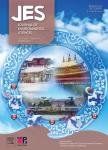Ecotoxicological assessment of diffuse pollution using biomonitoring tool for sustainable land use in Thailand
Ecotoxicological assessment of diffuse pollution using biomonitoring tool for sustainable land use in Thailand作者机构:Department of Plant Sciences and Agricultural ResourcesLand Resourcesand Environment SectionFaculty of AgricultureKhon Kaen University The University of QueenslandCentre for Mined Land Rehabilitation (CMLR)
出 版 物:《Journal of Environmental Sciences》 (环境科学学报(英文版))
年 卷 期:2010年第22卷第6期
页 面:858-863页
核心收录:
学科分类:0830[工学-环境科学与工程(可授工学、理学、农学学位)] 09[农学] 0903[农学-农业资源与环境]
基 金:the research project of "Environmental Impact of Waste Product from Citric Acid Plant" and "Ecological Risk Assessments as Contaminated-Land Biomonitoring Tool for Sustainable Land Use in Thailand" supported by Groundwater Research Centre financial support from Khon Kaen University Thailand
主 题:ecotoxicological assessments diffuse pollution biomonitoring soil ecosystem
摘 要:As a developing country, Thailand has a significant issue with diffuse pollution of the soil ecosystem due to an indiscriminate use of agrichemicals and poorly regulated disposal of a wide variety of hazardous wastes. Practical risk assessment tools based on locallyoccurring species are needed to assess the effects of diffuse pollutants on the soil ecosystem in Thailand because reliance on soil criteria developed for overseas conditions may provide inadequate protection. Native soil organisms in Thailand may be more or less sensitive to contaminants compared to overseas test species. This article described a biological indicator approach for ecological risk assessment of diffuse pollution in the soil ecosystem of Thailand from pesticide application with the aim of developing standardized protocols using native species and locally generated data to better evaluate the ecological risks of non-point source soil pollution. It was found that ecotoxicological assessment provided a better understanding of the ecological impacts that diffuse pollution induced on Thai environmental conditions. Thai soil biota species were more sensitive to soil contaminants than similar species overseas. Soil series also had an influence on the ecotoxicology of contaminants to soil biota. Collembolan, Cyphoderus sp., was demonstrated as a useful alternative test species to Folsomia candida (international test species) for terrestrial ecotoxicological testing of Thai soils. In addition, the soil biota activities such as soil respiration and earthworm avoidance including soil biodiversity and the litter bag decomposition technique are also good tools to assess the effects of diffuse pollution by pesticides on the soil ecosystem of Thailand.



